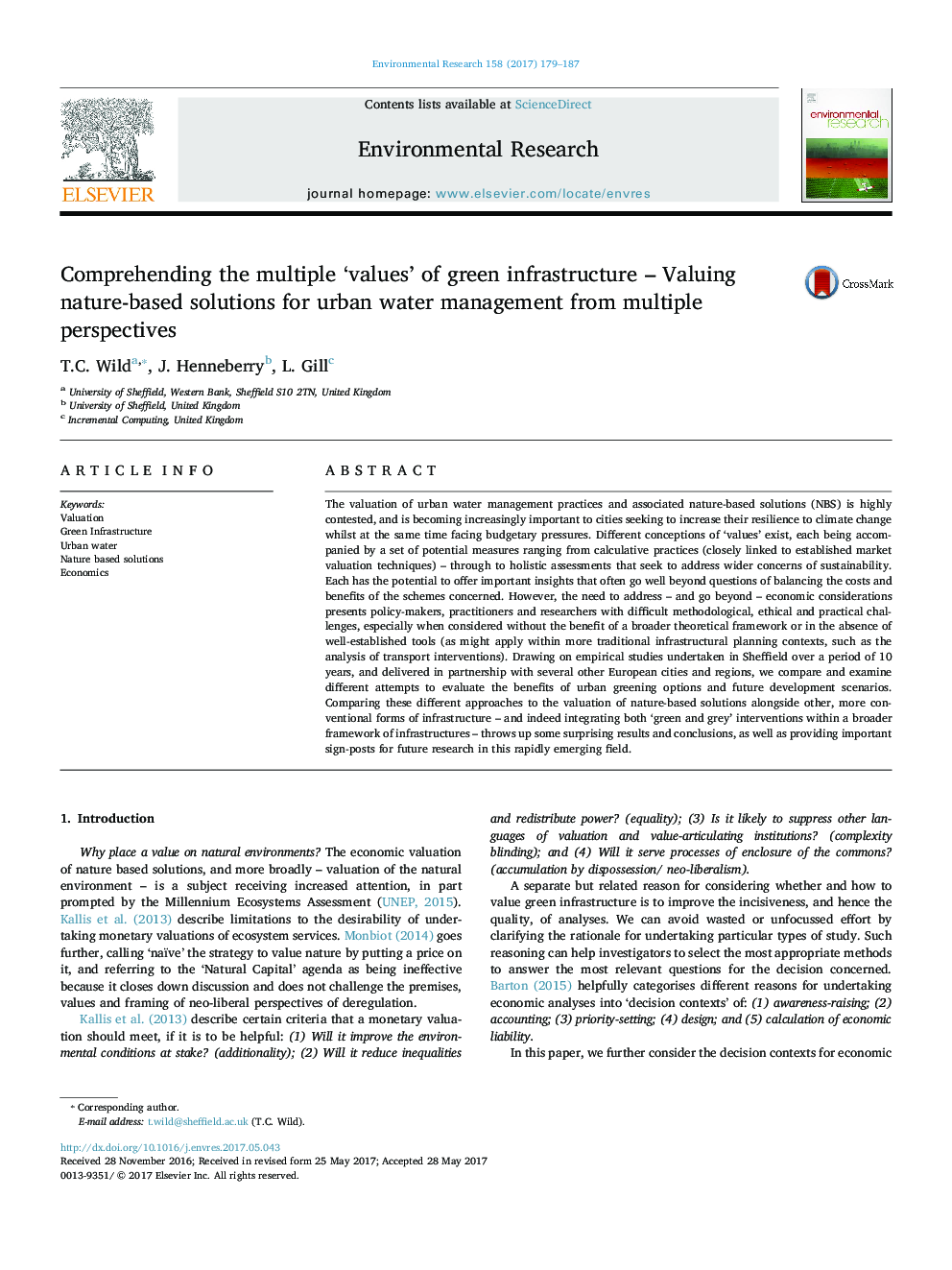| Article ID | Journal | Published Year | Pages | File Type |
|---|---|---|---|---|
| 5756370 | Environmental Research | 2017 | 9 Pages |
Abstract
The valuation of urban water management practices and associated nature-based solutions (NBS) is highly contested, and is becoming increasingly important to cities seeking to increase their resilience to climate change whilst at the same time facing budgetary pressures. Different conceptions of 'values' exist, each being accompanied by a set of potential measures ranging from calculative practices (closely linked to established market valuation techniques) - through to holistic assessments that seek to address wider concerns of sustainability. Each has the potential to offer important insights that often go well beyond questions of balancing the costs and benefits of the schemes concerned. However, the need to address - and go beyond - economic considerations presents policy-makers, practitioners and researchers with difficult methodological, ethical and practical challenges, especially when considered without the benefit of a broader theoretical framework or in the absence of well-established tools (as might apply within more traditional infrastructural planning contexts, such as the analysis of transport interventions). Drawing on empirical studies undertaken in Sheffield over a period of 10 years, and delivered in partnership with several other European cities and regions, we compare and examine different attempts to evaluate the benefits of urban greening options and future development scenarios. Comparing these different approaches to the valuation of nature-based solutions alongside other, more conventional forms of infrastructure - and indeed integrating both 'green and grey' interventions within a broader framework of infrastructures - throws up some surprising results and conclusions, as well as providing important sign-posts for future research in this rapidly emerging field.
Related Topics
Life Sciences
Environmental Science
Health, Toxicology and Mutagenesis
Authors
T.C. Wild, J. Henneberry, L. Gill,
